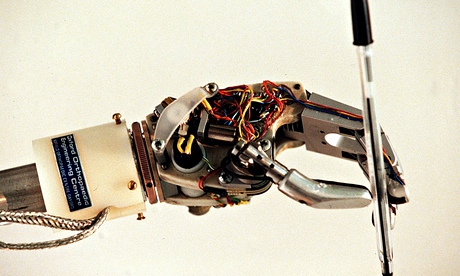
In 1983, William Chamberlain and Thomas Etter released a book called The Policeman’s Beard Is Half Constructed, described as the “early fiction” of a computer program called Racter. In July 2015, the Neukom Institute for Computational Science at Dartmouth College announced a “Turing test in creativity”, the first short story prize for algorithms. Just as science fiction is always and inevitably a critique of the contemporary, so the question of machine intelligence and literature is also a question of human intelligence and literature.
Even more than the ability to hold a conversation, the basis of the original Turing test, the ability to write fiction seems like a tipping point for artificial intelligence, albeit perhaps a distant one. Algorithms write non-fiction all the time, of course. The Associated Press employs a company called Automated Insights to create short news reports from raw data, based on the same templating process Racter used. More advanced software is working on longer pieces. So in one sense, the Turing test for language has already been passed. The real question for fiction is: how might it be useful?
When we think about books and new technology, we too often think of flashy multimedia apps that add sound and fury but little true enhancement to literature. The word is still enough but, in a sea of data and experiences, which words? To what should our attention and imagination be drawn? Robot writers could become co-authors of our most complex subjects, helping to write the narratives of climate change and political upheaval just as surely as their industrial and financial colleagues are driving them. Chamberlain wrote of Racter: “I find intriguing the possibility that we human beings, whose very consciousness is a faculty completely interwoven with experience, may relate in some way to a form of ‘sentence’ that has no experiential grounding.” As technology engenders new experiences of the world, it might also help us to understand them.

